

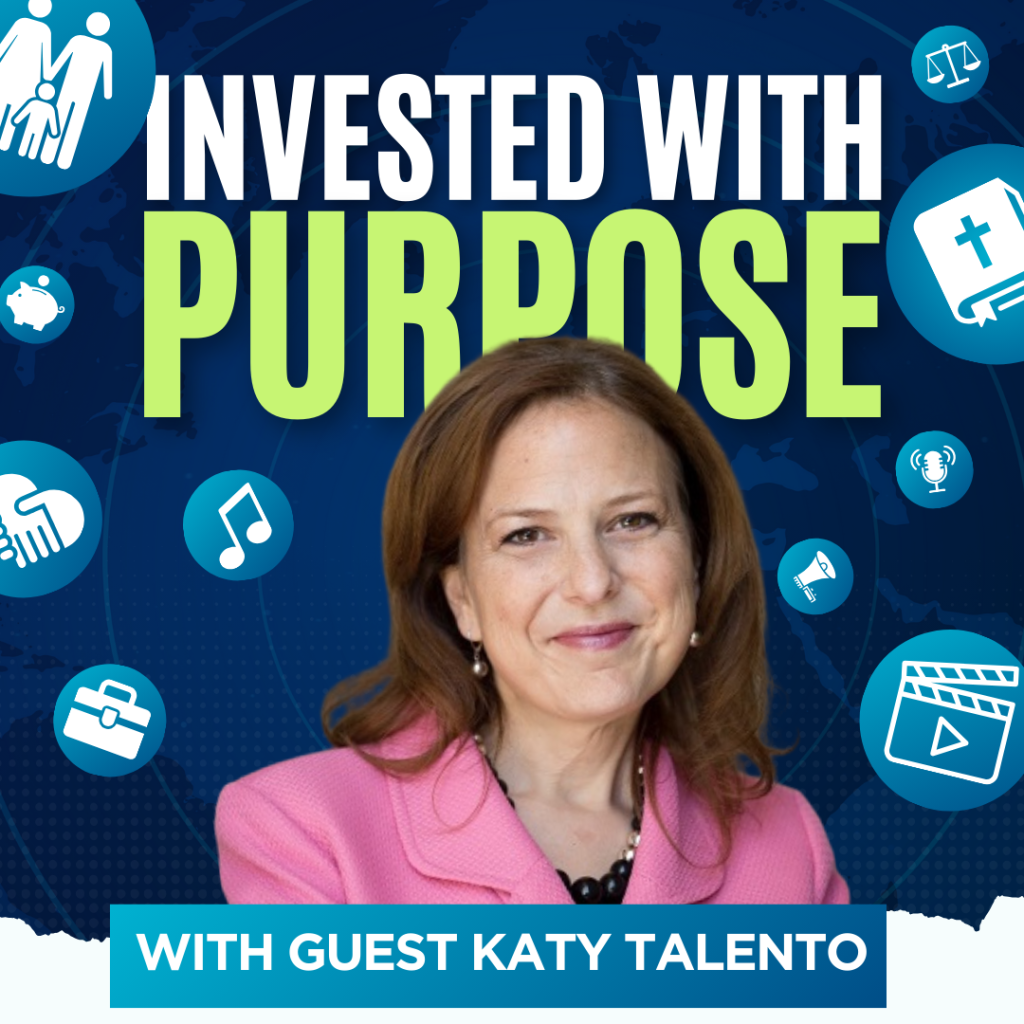
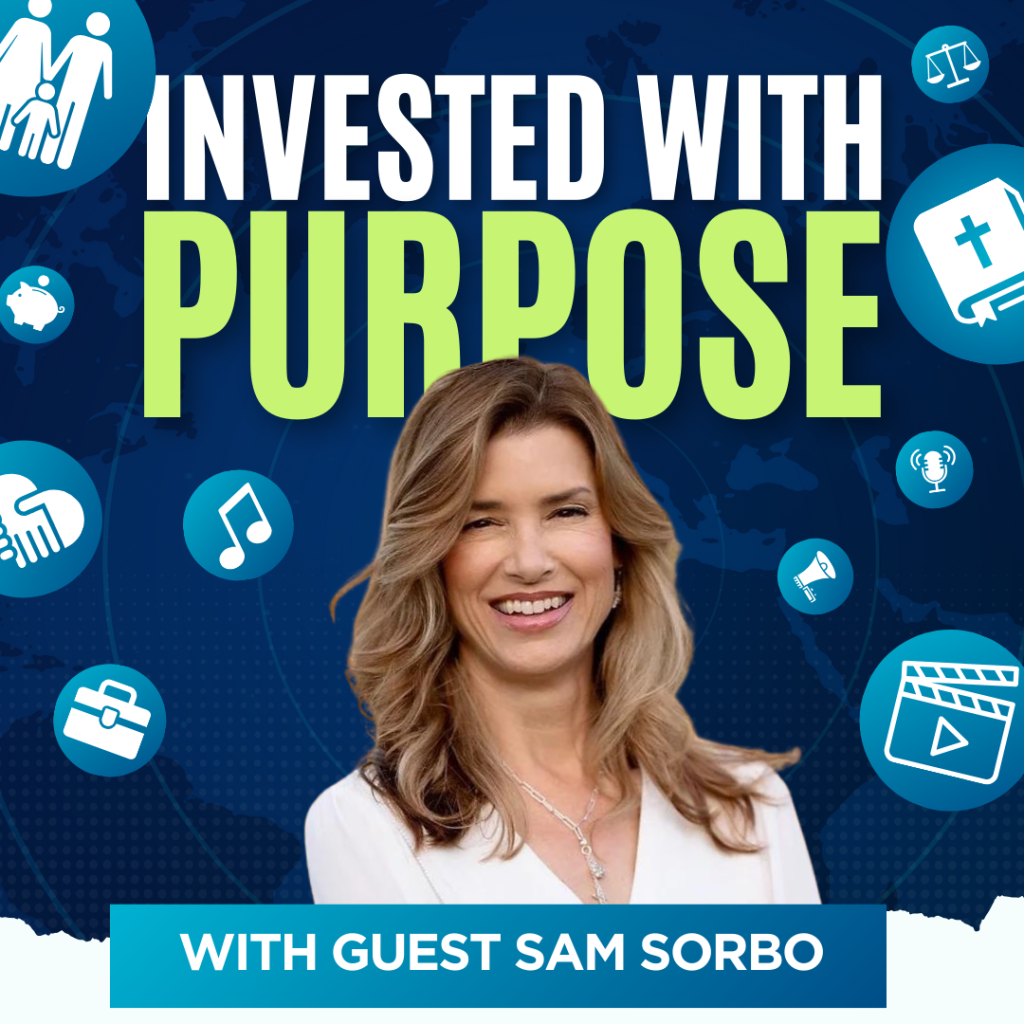
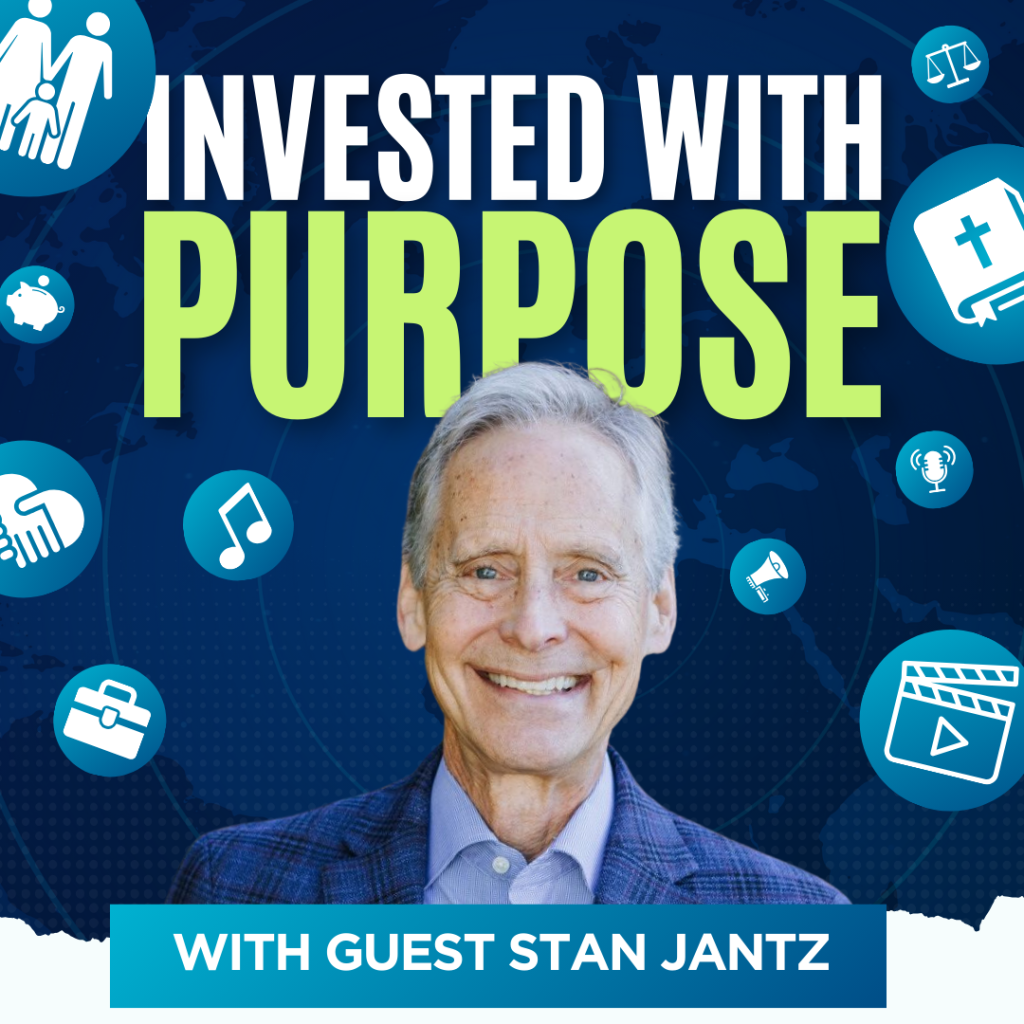
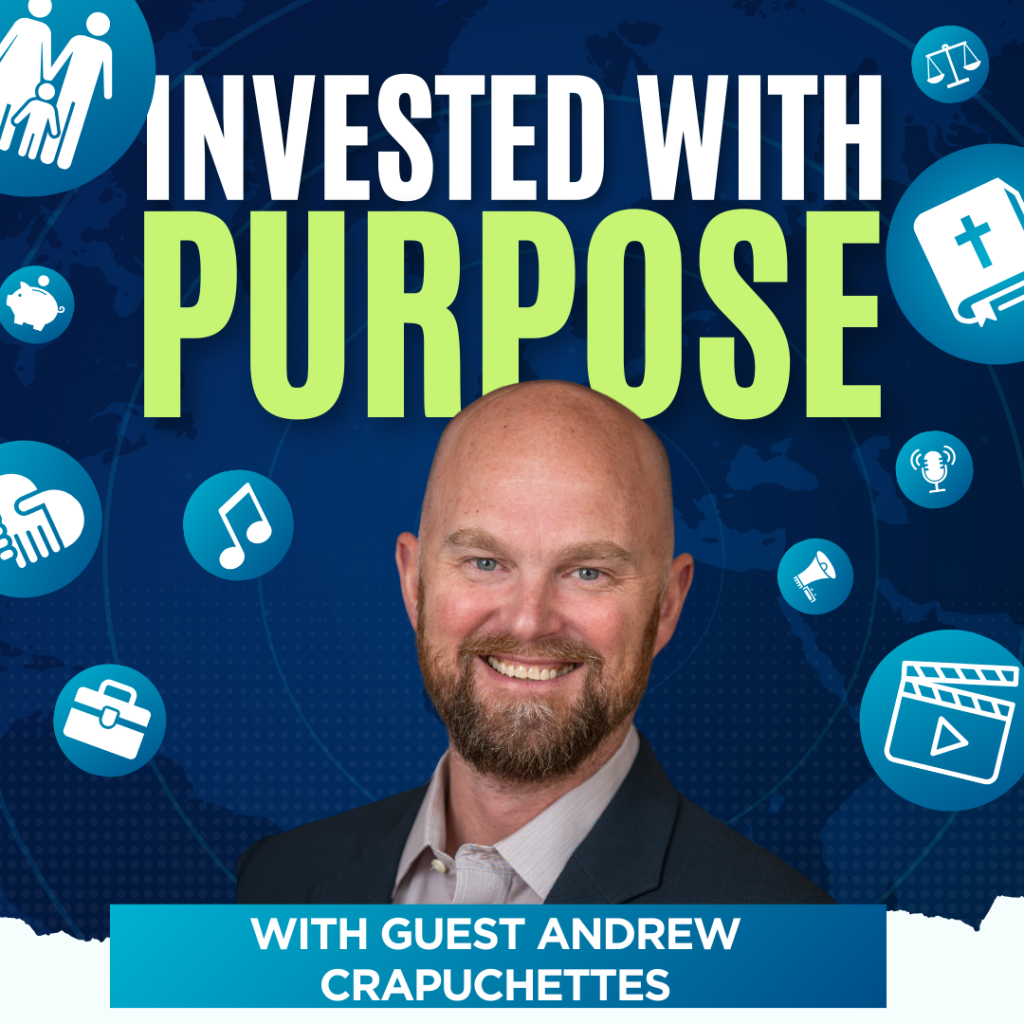
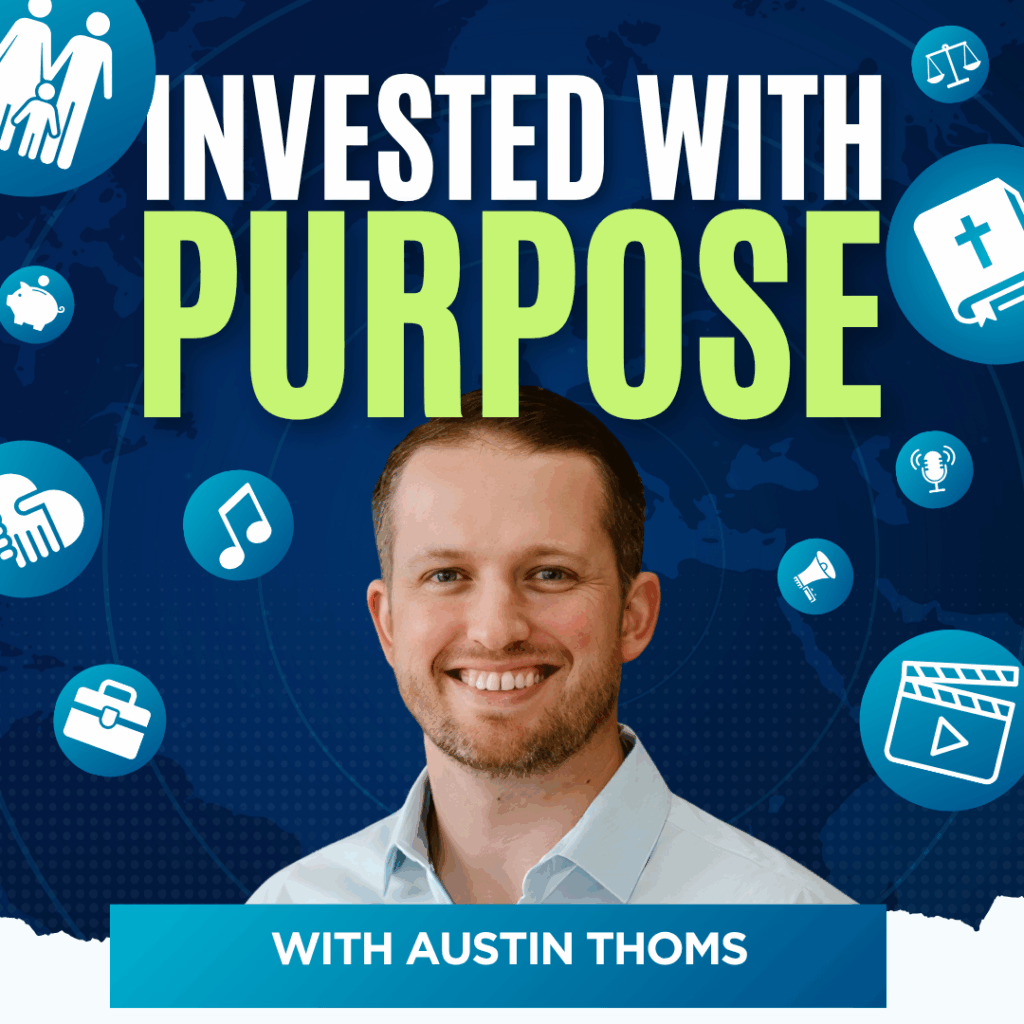
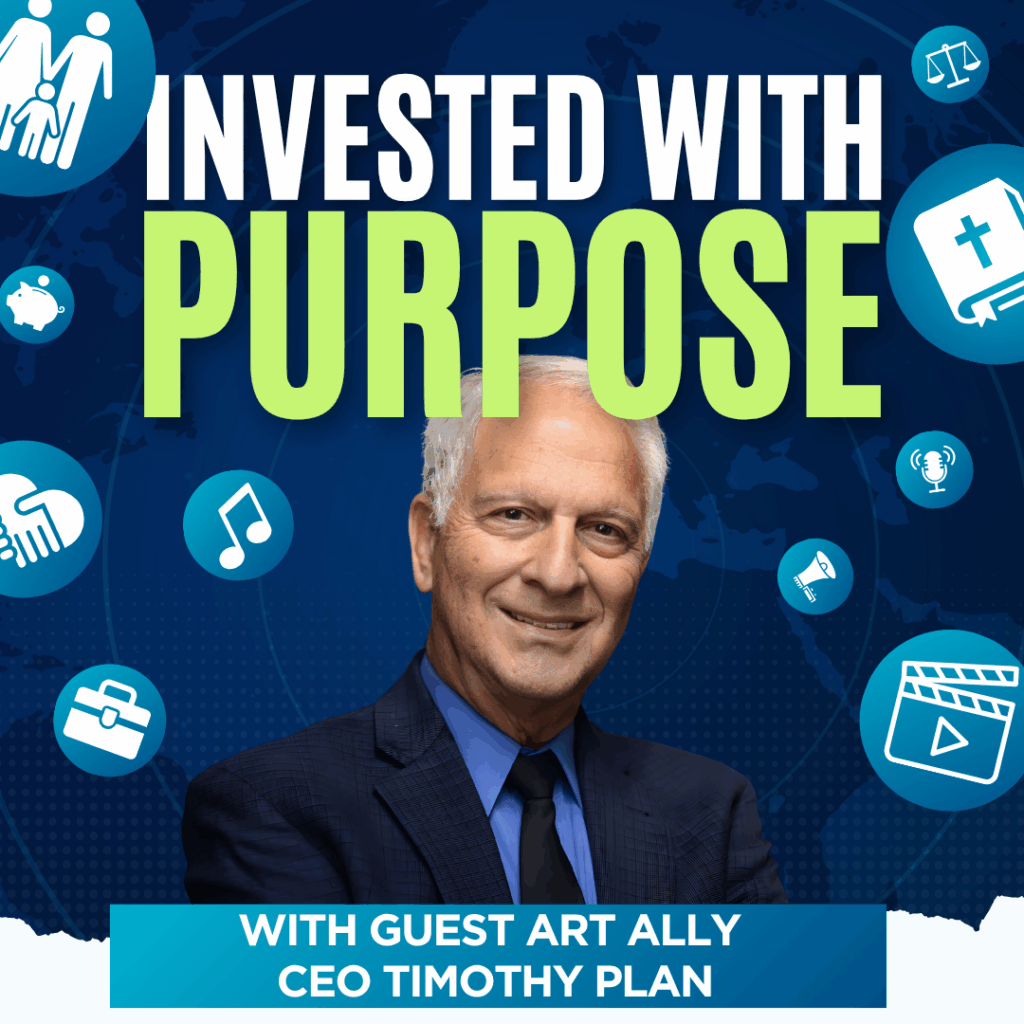
And you dwell on that for a minute and he is the Lord over everything, including how you use money, whether you’re getting into debt or spending it or saving it or investing it.
-Art Ally
Welcome to Invested With Purpose, a podcast of candid conversations with ordinary people who are doing extraordinary things through responsible stewardship of their time, talents, and treasures.
Orlando: My name is Orlando.
Brian Mumbert: And this is Brian. And today, we have a very, very special guest with us today. Today, we have the founder and president of Timothy Plan, Mr. Art Ally. Art has been in this business for more than 40 years now. So he served in multiple roles, both in production and in management, before he was even at Timothy Plan. He’s been at Timothy Plan since the very beginning, more than 27 years it’s been in existence. And he is the author of the book Invested With Purpose. Mr. Art Ally, thank you for joining us.
Art Ally: Gentlemen, it is my pleasure.
Orlando: Likewise. Thank you.
Brian Mumbert: So Art, before you started Timothy Plan, what did you do? Little background.
Art Ally: Well, you kind of gave it. I have been in … Timothy is actually 28 plus years old now. I spent 18 years in the industry managing branches, doing personal production, helping clients invest their money, when finally, it hit me that I’m helping people, my clients, invest money in companies that are trying to destroy our culture.
Orlando: Wow.
Art Ally: And we looked around to see if anybody was out there for companies that are involved in things like abortion and back then, that was a hot issue. Pornography, non-traditional married lifestyles, whether homosexual or bisexual, nobody was screening that stuff out. There were some alcohol, tobacco, casino gambling. So it got to the point where either forget about this or start a mutual fund family that would be serious about screening these things out and that gave birth to the Timothy Plan.
Brian Mumbert: So question following that up, what does Timothy Plan mean? Or where did the name come from? How did you land on Timothy Plan?
Art Ally: Oh, you had to get that in. Okay. Well, I have learned over the years, I’ve been married a long time, that you need to consult with the little woman, your wife.
Brian Mumbert: Absolutely.
Art Ally: Before you embark on any project whatsoever. So I went home and told her what I was thinking and she got excited about it. I said, “Well, we need to name it something.” And she went through some of our study material and bible studies and really landed on the name Timothy. And she found it in 1 Timothy 5:8, which says, “If you’re not providing for your family, you’re worse than a nonbeliever.” And then same chapter verse 22, “Avoid evil.” And it just came together, so it became the Timothy Plan.
Orlando: Absolutely. Well, a long career and very encouraging to hear and Timothy Plan being 28 plus years as the first biblically responsible mutual fund here. But I’ve read your book and I’ve heard the stories around the office and I just want to know what kept you going through the challenges early on? I mean, being the first to do something like this within the financial service industry, discouragement. How did you work through that?
Art Ally: Orlando, that’s a great question and I can joke around, the Lord has a two by four with my name on it and he uses it. And that did keep me going. But initially, it was painful. Investors were not thinking in these terms. It was all about, “What kind of return can I expect?” Not, “What do I own? Where’s this money invested?” And they did not beat a path to our door. And as we say in the book, in the early days, it’s a very expensive enterprise that we do, costs a lot of money to operate a mutual fund. And we actually ran out of money four times and you don’t do that in this industry or the SCC will shut you down. And always, the first time was excruciating. But at the last minute, the Lord provided additional funding. I have no responsibility for that.
He brought it to us, brought the idea to us, and we extended and then we ran out of money again. And that was not pleasant at all. And at the last minute, he brought in investors that I had no way of knowing, who wanted to be part of this. And the third time was a little less painful, but painful nonetheless. And again, at the last minute, the 11th hour, he brought in assets that would carry us through. And the fourth time we ran out was actually on New Year’s Eve. And on New Year’s Eve, we had a very small staff, I’m sitting there waiting for the phone to ring because by then I started to get it. He wants us to continue, and they couldn’t believe how calm I was.
Because I’d already been jammed through the keyholes three times and He delivered every time. And the phone rang and we were back in business. And I guess that’s when He decided He could trust us. So you can trust God. The question is, can He trust you? And the only way to know that is to be put through the fire and it’s no fun, I wouldn’t want to repeat it, but I wouldn’t trade it for anything in the world.
Orlando: Absolutely. That’s so encouraging as you hear stories of the Lord’s provision and how he’s working even in those hard times, through you, to refine you and trust you with what he’s given. And so as you were dealing with that, were there any, obviously the Bible, but any books or resources or even Bible verses, in how the Lord came to you and encouraged you to keep pushing during those times?
Art Ally: Well, where the encouragement came is when the money showed up at the 11th hour. And I know I had nothing to do with it. So I could read all the books in the library and that wouldn’t change what happened.
Orlando: Absolutely.
Art Ally: Only He would’ve provided that and every single time, He did.
Brian Mumbert: So to get to know you a little bit more personally, Art, I know that there are some things that you have done prior to Timothy Plan that people might not be aware of. I know that at one point, you ran for office here in the Orlando area, didn’t you?
Art Ally: Well, I actually did. Didn’t want to. I do a lot of things I didn’t want to do, one of which was start Timothy Plan. This was not my idea, it was His. But we got to the point. I’m not political. I detest what’s become politics. I love scripture and biblical foundations, but we had a very liberal Republican state rep at that time, and we’d sit around and say, “Man, somebody’s got to run against this guy.” He was running for his fourth term unopposed as a Republican, we call them today, Rhinos, Republican in name only. Because he was very liberal, had a $400,000 war chest for his reelection campaign in case anybody had the nerve to run against him. And we’d sit around and point at each other, “Hey man, you run. No you, no, I’m busy. I got business to do, I can’t do it.” They’d point at me and I said, “There’s no way I’m going to do it.” Anyway, we got to the deadline for filing.
Nobody had opposed this guy. So I said, “Okay, I’ll do it.” I had no money, no name recognition. This was back in 1990. No campaign staff or ground. We had nothing. But we had a plan. And the plan was based on the principles in the book of Nehemiah where if you recall, Nehemiah got permission to go back to a destroyed Jerusalem and found it totally in ruins. It was impossible to ever begin rebuilding. They were surrounded by enemies that wanted to kill them, just like they are today. And humanly speaking, there was no way. But God gave him a plan that, “Nehemiah, you start by building the wall, the defensive wall, and then rebuild the city. And the way you rebuild the wall is you take every family and have them only focus on one section of the wall, period. Don’t look to the left, don’t look to the right.”
And they did. And that wall got rebuilt in a miraculous 52 days. We used that strategy. Our sections of the wall in any political race are called precincts. So our goal was to recruit one rock solid Christian in every precinct that we could find, who would only be concerned with their section of the wall, their precinct. And we had six weeks to mount up a campaign. In those six weeks, God raised up 150 Christians who had never worked in a political campaign ever before, ever. And darned if every one of them didn’t have a two week vacation plan because this was during the summer. So we had four weeks. And in those four weeks, the biblical principal worked. We had three counties, Seminole was 75% of the district, that’s where we focused. And on election night the Sentinel announced me as their winner.
And he had $400,000, we were only able to raise $15,000. We just had some yard signs and a brochure. I got to Brevard County twice, we had nobody over there. I just worked a couple neighborhoods. He lives over there, my opponent. And when Brevard County came in, he shrunk that lead, a commanding lead, down to 36 votes. There was one precinct in Orange County. I didn’t even know where it was. Never got there. He did. He worked it. And when that precinct came in, just that single precinct, he won that election by six votes.
Orlando: Wow. My goodness.
Art Ally: But I had to live that down because that precinct contained the city of Christmas. So I was a Christian that forgot Christmas. For years, I had to live it down. I’m sorry, I took longer-
Brian Mumbert: It’s just great for people to get to know some of the things that you have done in the past and how active you are in the community. I know you’ve also been part of some life chains, correct?
Art Ally: Well, I have, and again, that was not my idea. But life chains started in Bakersfield, California. On a certain day, Christians would stand on the side of the road for an hour, hour and a half, holding signs that say, “Abortion kills children.” And a group wanted to do it here. And they, for some reason, pointed to me and said, “You’re going to do this.” So I don’t know how to do any of that except I do know how to organize things. And so we formed a committee and started talking to churches, “Hey. You want to participate in this thing?” And had people line out the route, had people get the signs, had people work with the law enforcement authorities and make sure we were in good shape there. And the first year we had about 8,000 people line Colonial Avenue in 7092, you know where those are.
And both sides of the road, five feet apart, we stretched. The second year it went up to 12,000. The third year it was 15,000 people.
Brian Mumbert: Wow. Amazing.
Art Ally: The biggest life chain, I think, in America. And that was quite an experience.
Brian Mumbert: Yes. I mean, gathering from all these things, you put them all together and you see how even someone that is not looking to do something but is just obedient to what God is telling him, can have such a big impact. And it could be politically, it could be for human life and the abortion issue. And of course, it can be for Timothy Plan and how that all got started. So shifting gears a little bit, Timothy Plan uses sub-advisors. They don’t have in-house fund management and I know some companies do that. Why was that decision made in starting Timothy Plan?
Art Ally: Well, I may be dumb, but I am not stupid. I knew we did not have the capability of serving as a money manager. So we searched and we used some consultants, institutional consultants to survey all the money management firms. And we were looking for the top tier firms in each asset category and God provided them. And that’s what we have, managing every one of our 12 funds right now.
Orlando: Yeah. And as we talk about Timothy Plan here and the funds and the screens that we utilize here at the Timothy Plan, how did you land on screening companies as the way to set Timothy Plan apart? I mean, there’s a lot of other perspectives out there that would say, “Utilize any money from different resources and use that in your personal life to support things that are biblical or whatever the case may be.” How did you land here on screening companies, especially when there was nothing like this out there at that time?
Art Ally: Well, it was something we had to grow into and people would ask me, “So you just invest in good companies?” And I had to tell them, “No, we’re biblically responsible and the Bible’s very clear. There’s not [inaudible 00:15:44]. Not one.” So we were able, through our team of five full-time people who do nothing but research these companies, identify companies, for lack of a better term, that are not passively unrighteous but are pursuing an unholy agenda. We will not put those in any of our portfolios. And those are involved in what we just discussed, abortion, pornography. We won’t own those companies and if you’re a solid Christian, you shouldn’t own those companies. But there was no alternative and that’s what made us special.
Orlando: So I mean, I’m just thinking of the cultural climate now, how things are so polarizing. Is there any concern about running out of companies to invest in, especially now it seems like companies are more outspoken and wanting to virtual signal and we see the issue with abortion and companies funding employees to go to other states for abortions and things of that nature. What are your thoughts on that? Is there any concern that we’ll run out of companies to invest in?
Art Ally: Well, that’s up to the chairman. I mean, He’s brought us this far, He is going to continue to bring us to the finish line, wherever that is. But people might be interested, wondering, “Is there any company worth investing in?” And our research right now screens out just under 10% of them. So our money managers have 90% of the universe available for their analytics, to be able to decide which are the best companies that will give us the best returns.
Brian Mumbert: I have to say, with companies that are out there being so forward right now in what they represent, it’s actually presented a great opportunity for Christians to really get a peak behind the curtain of what we see here at Timothy Plan every day in that, I know back when we started Timothy Plan and we were in the early days, a lot of research that goes into finding out what companies are involved in, still is a lot of research. But now companies are so upfront about what they do that it is confronting the average consumer on a regular basis.
Art Ally: Absolutely.
Brian Mumbert: Whereas before, it was hidden behind closed doors a little bit.
Art Ally: That’s right Brian. You’re exactly right. And in fact, that makes our team’s job a little easier.
Brian Mumbert: Certainly does.
Art Ally: But yeah, people … And it helps with the awareness factor because people aren’t … The average person has no expertise in investing. They rely on advice and other people, let alone where they’re investing. And they’re becoming more and more aware of that in this environment, and it’s pretty easy. All you have to do is read a newspaper, turn on the TV. These companies are getting bold. They are no longer hiding what they’re doing and people are becoming more aware of it and saying, “Man, I don’t want to own that company.”
Orlando: Absolutely. And the great part of that is it’s almost cornering people in, in a sense to where they have to deal with it almost. They can’t use ignorance as an excuse or just not knowing because we’re seeing, as Brian said, companies are very outspoken with what they represent and what they do.
Brian Mumbert: So for the majority of Timothy Plan’s existence, it has been mutual funds alone. But a couple of years ago, Timothy Plan launched ETFs. What was the inspiration to change a little direction and launch ETFs?
Art Ally: Well, we don’t have long term five year plans or any of that. We do planning, but the Lord changes things. And we saw on the horizon that exchange traded funds were a very popular investment vehicle. And so we started exploring and ended up launching two and then added two more. And then we added two more about a year ago, managed by an outstanding firm who are really partners with us and they’ve been very popular. They’re traded on the New York Stock Exchange. And we just saw that the entire market was moving in that direction and we thought we better get involved in it.
Brian Mumbert: So in closing this out, where do you see Timothy Plan going in the future, 10 years, 20 years from now? What is your vision for that?
Art Ally: Well, that’s going to depend on the succession plan because I’m not young anymore. And we’ve got a team with a deep bench of people who really care, about 30 people that are sold out to this mission, which is the key. It would be very easy to compromise and get off target and start becoming more worldly. And they’re not going to do that. We’ve got the kind of leadership now that are going to take over, continue. I think we’re going to see Timothy grow substantially. We did just cross over to a billion, compared to the rest of the mutual fund universe with the humongous funds out there, we’re still relatively small. But we’ve taken 2 billion dollars out of the hands of the world for our Christian investors. And to speak to your question about the future, I think we have discussed and you guys have indicated, this world’s getting more and more polarized and we want to be there for the people on the biblical side of that polar divide.
And actually, if people would come to understand an interesting statistic, if I have time to share that one, something over 60% of all the money invested in the mutual fund world is invested by people who claim to be born again Christians. What if we would align our behavior investing especially, and just come out from among them and be separate as the Lord says in Corinthians. America could change overnight because it’s always about the money. And my friend, Paul Blair, who really runs our pastor boot camps that we fund, sums it all up in one simple question, What area of your life is Jesus not the Lord over?
And you dwell on that for a minute and he is the Lord over everything, including how you use money, whether you’re getting into debt or spending it or saving it or investing it. We’re here for those on the investment segment of that, and they can invest with confidence. When we launched Timothy, the question was, “How in the world do you expect to get good investment returns if you screen out some of the biggest, most profitable companies in the universe?” And my answer then was the same as my answer today, if, which is a big word, you are a Bible believing Christian, obedience trump’s performance every time and we’re here for that. But 28 years, we’ve proven we get very competitive performance. You don’t have to own those companies. Our money managers do a great job for us, and we’re just here for the people that really care.
Brian Mumbert: Outstanding, outstanding. So last question. Where can a person find out more about Timothy Plan?
Art Ally: Well, I thought you were never going to ask that one Brian, but thank you for that. We have a website that even I can navigate, timothyplan.com. It’s really simple to navigate. I would commend them to go there. But one of the other things that I’m pretty pleased with and proud of is call our office, 1-800-TIM-PLAN. That phone will be answered by a human being, not a computer. And they will connect you with another human being that is there to serve you and answer your questions. We are in the service business first and foremost, as well as the mutual fund business. So either way, call us, go to the website. Go to the website, get confused and call us. We’ll help clear some of that up, but we are here to serve.
Brian Mumbert: Well thank you very much, Art, for your time and for your testimony and your willingness to be obedient to God’s calling. It’s something that we can all focus more on. I want to thank everyone for listening today. This has been Invested with Purpose, making the most out of our time, talent and treasure
I do a lot of things I didn’t want to do, one of which was start Timothy Plan. This was not my idea, it was His (God). – Art Ally
Invested with Purpose was inspired by the story of Art Ally, his passion for stewardship, and the development of Timothy Plan as revealed in book “Invested with Purpose”. The hope is that this podcast will inspire and inform followers of Christ to become invested with purpose in every area of life, including finances. Timothy Plan paved the way for faith-filled investors to invest in companies whose products and practices bring real blessings to the broader culture. Thank you for listening and please do not forget to subscribe, rate, review and share this podcast. Visit timothyplan.com to learn more about Biblically Responsible Investing.
BEFORE INVESTING, CAREFULLY CONSIDER THE FUNDS’ INVESTMENT OBJECTIVES, RISKS, CHARGES, AND EXPENSES OF THE INVESTMENT COMPANY. THIS AND OTHER IMPORTANT INFORMATION CAN BE FOUND IN THE FUND’S PROSPECTUS. TO OBTAIN A COPY, VISIT TIMOTHYPLAN.COM OR CALL 800.846.7526. READ EACH PROSPECTUS CAREFULLY BEFORE INVESTING.
Investing involves risk, including the potential loss of principal. To read more about Timothy Plan and access fund information, including the prospectus, fact sheets, performance, and holdings for each Fund, go online: mutual funds at mf.timothyplan.com and ETFs at etf.timothyplan.com. Mutual Funds distributed by Timothy Partners, Ltd., member FINRA. ETFs distributed by Foreside Fund Services, LLC, member FINRA. Timothy Partners, Ltd. is not affiliated with Foreside Fund Services, LLC.